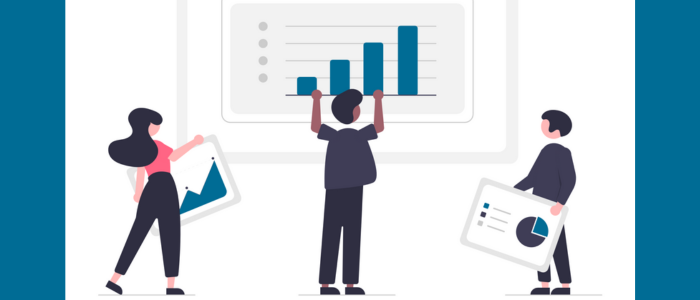Access Alliance 2024 – 2025 Annual Planning and Evaluation Report

Project Overview
This report provides a comprehensive overview of Access Alliance’s planning and evaluation (P&E) activities from April 2024 to March 2025. These activities support evidence-informed decision-making and continual improvement of programs and services. The report summarizes 30 program evaluations.
This annual activity creates an accountable evidence base that:
- Demonstrates to the Board, funders and community partners that programs are delivering measurable outcomes.
- Provides a systematic learning loop – findings are fed back to program managers who then draft implementation plans. Recommendations are intended to be embedded in ongoing program delivery and planning cycles.
- Highlights system‑level strengths (e.g., high client satisfaction, equity‑focused design) and gaps (e.g., transportation barriers, limited awareness of certain services).
The report demonstrates how Access Alliance uses evaluation evidence to improve service delivery and maintain accountability at all levels. It highlights organizational strengths and identifies areas for development, supporting planning, quality improvement, and compliance with accreditation and external evaluation standards.
Our Approach
The purpose of these annual evaluations is to ensure Access Alliance’s initiatives remain client-centred, equitable, and responsive to the needs of a diverse, multicultural community. This work is rooted in robust standards. Each evaluation follows our Planning & Evaluation Policy, which aligns with the Tri‑Council Policy Statement and the Joint Committee on Educational Evaluation (JCSEE) standards (utility, feasibility, accuracy, propriety).
Key issues addressed by the evaluation assessments include:
- Program outcomes.
- Barriers to service access for equity-deserving populations such as newcomers, refugees, LGBTQ+, low-income clients, and those living with disabilities.
- Workforce representation and inclusion.
- Community engagement, volunteer management, and client empowerment.
Our evaluations use a participatory, mixed-methods approach. Each program establishes a logic model, expected outcomes, and engages stakeholders (including staff, volunteers, and clients) in both the design and review phases.
Each evaluation generally addresses:
- What is working well in service delivery that we should maintain and sustain?
- Where are there barriers to access, equity, or effectiveness?
- Based on client and staff feedback, what changes can be made to better support client needs?
- How can programs be improved to better support client needs?
On-the-Ground Evaluations are conducted by program teams, supported by our evaluation team. These are annual evaluations for all programs, which include real-time collection of client feedback.
In-Depth Program Evaluations are detailed evaluations that occur every 3-5 years. They are conducted by our evaluation team, in collaboration with program teams. In 2023 – 2024 in-depth program evaluations were conducted on:
- Employment Equity Survey
- Volunteer Evaluation Report
- Immigrant Researchers Support Network Evaluation Report
What We Learned
Program Adaptation: Findings and recommendations are actively incorporated into planning. For example, volunteer feedback led to plans to clarify roles, enhance training, and promote youth engagement. IRSN results prompted recommendations around long-term funding and user-friendly online platforms.
Some evaluation highlights:
High client satisfaction: 94% of participants in the Among Friends Entrepreneur program, 100% of Gentle Fitness Program, Citizenship Program, Enviroleaders and Green Access Garden Stewards, and Kids Art Innovations Program participants “would recommend the program to a family/friend”.
Volunteer engagement is strong: 91% of Free Income Tax Clinic volunteers agreed that the experience increased their skills and leadership ability. Overall, Access Alliance volunteers feel a strong connection to the organization, a sense of belonging, and mutually respectful relationships with program staff. Most plan to continue their volunteering efforts.
Transportation remains a persistent barrier: Transportation, timing, and lack of information are recurring obstacles. Addressing these factors, such as providing TTC fare support, emerged as a recommendation across several programs. In the Among Friends Thursday Art program, 62.5 % reported transportation as a barrier to attendance.
Equity & inclusion are perceived strengths: Most program participants report feeling welcomed, supported, and included. For example, 100% of evaluated participants in the 2SLGBTQI Among Friends programs felt self-accepted, and 100% would recommend the program to peers. 100% of participants in the Hijabs and Helmets cycling program felt “comfortable and welcome”.
Impact is measurable: High levels of satisfaction and perceived benefit were recorded across varied programs (employment, mentorship, dietetics, mental health, seniors’ fitness, youth and families, volunteerism). 78% of Newcomers Cooking Together (Adults) participants reported improved cooking skills and nutrition knowledge. The Free Income Tax Clinic generated $200,814 in refunds and $414,510 in Trillium benefits for clients. Quotes from participants further underscore program value, such as the Among Friends Entrepreneur Program: “This program sharpened my skills… you made my dream a reality.” From a Free Income Tax Clinic client: “It makes me feel independent and takes away a lot of stress and anxiety around getting my taxes completed”.
Program awareness: Some clients indicated a lack of awareness of programs as a barrier to participation. 50% of Newcomer Women’s Support Group participants cited lack of awareness as the biggest reason for non‑attendance. Many clients indicated that, through program participation, they increased awareness of other resources and services they could utilize at Access Alliance. 95% of Newcomer Cooking Together and 78% of Seniors’ Tea and Chat participants were more aware of health and wellness resources at Access Alliance.
For more information contact research@accessalliance.ca
